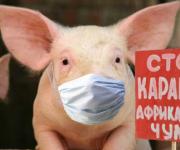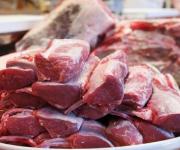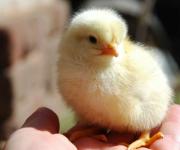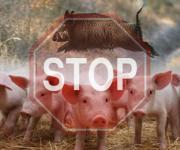The Ministry of Agrarian Policy believes that it is better to help the emergence of dairy cooperatives than to ban "second-class" milk.
This was told by a journalist http://agravery.com
The Association Agreement with the EU does not oblige Ukraine to prohibit individual farmers from surrendering their milk for processing. Direct ban of second-class milk from the citizens is "economically harmful", since it will require significant costs from the government and will harm the dairy industry. According to the Ministry of Agrarian Policy, the individual farmers gave almost 40% of the 3.06 million tons of milk processed in 2017. Therefore, the government does not plan and do not introduce a ban on the purchase of second-class milk from the citizens. Milk processors themselves are against such a prohibition. This was stated yesterday at a press conference by the First Deputy Minister of Agrarian Policy Maksym Martyniuk.
Chairman of the State Service of Ukraine for Food Safety and Consumer Protection Volodymyr Lapa added that the government only wanted to raise the quality of Ukrainian dairy products to the level of EU standards by 2022. To this end, the government decided to limit from January 1, 2018 the processing of second-class milk from the citizens. But, "realizing the realities of the industry and the need for a gradual transition, the Ministry of Agrarian Policy initiated the postponement of the entry into force of the updated standard by July 1, 2018," says the official.
What are the quality problems with milk from the citizens? And how do they determine the grade and quality of such a product?
The head of the State Service of Ukraine for Food Safety and Consumer Protection explains that now in Ukraine milk is used for extra, prime, first and second classes. The quality and grade of milk is determined by the ratio of somatic cells and bacteria. The less such organisms in milk, the safer it is for human health.
The EU standards determine that in the cubic centimeter of milk for processing there can be no more than 100 bacteria and 400 thousand somatic cells. This standard should be followed by Ukrainian milk producers who supply their products to Europe and other parts of the world.
The second kind of milk "from the citizens" has 200 bacteria and 400 thousand somatic cells according to the current standards. Such milk not only spoils quickly, but it can also cause diseases of the digestive system, says Serhii Vovchenko, chairman of the supervisory board of the Milk Alliance group of companies.
With such a motive, Lapa adds, the government decided to take out milk of the second grade with DSTU 3662: 2015 "Cow milk-raw material. Technical conditions ", the launch of which was postponed from January 1, 2018 until July 1 of the same year. According to this GOST, milk of the second grade is forbidden to be processed for drinking milk. By 2020, it will be allowed to process for butter, cottage cheese, powdered milk and condensed preserves, until 2022 - for casein and protein for animal feed.
Will the citizens be able to sell their milk after July 1, 2018?
The processors will be able to buy milk from the citizens before January 1, 2022, says Deputy Minister of Agrarian Policy Olena Kovalova. If the industry does not then be able to give up second-class milk, they will postpone the complete refusal of such a product "for a while". Governmental norms do not apply to the sale of milk from individual farmers to customers directly, the employee assures.
Olena Kovalova also adds that processors are increasingly in need of prime quality milk. In 2016, the plants received 13.8% of extra-class milk from the total volume for processing, in 2017 - 15.5%. Processing of several grades of raw materials at the same enterprise raises the cost of the production of dairy products. Therefore, processors themselves, without government documents, will gradually reduce the volume of purchase of second-class milk from the population.
According to the Ministry of Agrarian Policy, over 9 months of 2017, processors increased milk purchases by 3.5%. Agro-enterprises increased their supplies by 5.9%, or up to 2.05 million tons. Individuals increased by 1.8%, or up to 1.01 million tons. At the same time, there are 460 thousand heads of dairy cows in the agricultural sector, and individual farmers have 1.6 million heads.
If milk "from the citizens" is so low-quality and harmful, then why does the government simply not prohibit the processing of such a product?
To monitor the implementation of this ban, the government will have to spend more money than improving the quality of milk in the households of the population, explains Maksym Martyniuk. Moreover, as the official explains, state regulation is gradually moving from prohibitions to incentives. Therefore, "no one anywhere to catch any milk tankers." Instead, the state will help the peasants to improve their milk quality.
Do they really need help from the state for individual farmers to improve the quality of their milk? Theoretically, to give milk of the first class, peasants have to wash their hands before milking cows. During the milking, it is necessary to wear clean gloves and clothes. A milking machine is used for milking that minimizes the contact of milk with air. In this case, the cows should be inspected regularly by a veterinarian. But, Maksym Martyniuk adds, milk can lose quality not only during milking, but also during delivery for processing. The official gives details that for processors are interested in volumes from 10 thousand liters of chilled milk. To remove the product from the farm, the factory can send a milk tanker with a large cistern and a refrigerator, and so bring the milk quickly and not yet spoiled. Milk chilled to 4°C must be brought to the plant in no more than 24 hours, cooled to 6 ° C milk must be brought in not more than 18 hours.
Individual has no own individual cooler and milking machine. Milk tanker will not arrive from the plant to take his 40-50 liters. But the Soviet milk tanker will arrive without any refrigerator from the procurer. He will buy from the peasant his 40-50 liters of milk, but he will pay for the second-rate milk, because the individual farmer cannot prove the high quality of his product.
According to Martyniuk, the financial incentives from the state to create cooperatives for the procurement of milk will help to bring individual farmers out of this vicious circle and improve the quality of their milk.
But there are more than 600 cooperatives in Ukraine, which give less than 1% of all agricultural products. Is the Ministry of Agrarian Policy going to create cooperatives for the sake of cooperatives?
Martyniuk assures that the Ministry of Agrarian Policy is not going to create "cooperatives for the sake of cooperatives". Also, it is not going to write another program on state support for the development of cooperation in Ukraine. "We already had one such program. The effectiveness of its implementation should be assessed by the State Audit Service of Ukraine", - comments the head of the Ministry of Agrarian Policy.
In his view, the most successful in Ukraine were cooperatives, whose appearance the peasants themselves wanted. Financial assistance is the only thing that the beginning cooperators demanded from the state. Therefore, the Ministry of Agrarian Policy "farm billion" will spend in particular on co-financing the launch of milk-cooperatives. Also it will be spent for advisory services on the organization of cooperatives. In addition, the program to compensate for 25% of the cost of domestic agricultural machinery will be extended to refrigerators and equipment for processing milk. Again, cooperatives can take part in such a program, Olena Kovalova assures.
According to Martyniuk, "an average village with an average number of residents" needs 200-250 thousand UAH to create its own procurement station. For such expenses, 50 peasants have enough to lay out 4000 UAH. In a year, the peasant will earn 8,000 UAH, because for the first-class milk, 10 UAH per liter instead of 6 are paid. But the peasant may not have "free" 4000 UAH. If there is not enough money for the cooperative, the state "will add" the right amount, the official assures.
And when will the Ministry of Agrarian Policy show a detailed plan for the financial state support of dairy cooperation?
Maksym Martyniuk promises that the government will show detailed criteria for the distribution of state aid in particular for cooperatives next week.
The cooperatives say that the peasants are afraid of losing the right to a subsidy, so they are afraid to unite for big profits. Will this fear prevent the creation of those dairy cooperatives that the Ministry of Agrarian Policy is going to support?
Martynyuk says that when calculating subsidies, all incomes of the peasant are taken into account, regardless of their origin and expenses. If the peasant joins the cooperative, he will be able to show the calculations to the social protection agencies with the costs of milk production and income from selling it. This difference will become a real indicator of the earnings of a peasant. Although, in the opinion of Martyniuk, the incapacitated citizens should first of all receive subsidy. "Therefore, I do not think that there should be a person who is inoperable on an equal footing, and cannot therefore pay and earn for utilities, and a person who can do it. But this issue is more justice and the essence of social assistance than the development of the agricultural sector. I think that some kind of balance will be found between getting the subsidy and selling milk, " says the head of the Ministry of Agrarian Policy.
According to the State Statistics Service of Ukraine, in 2016, 7.4 million families received subsidies. 33.9% of people who received subsidies lived in the village or 2.5 million families that received 2.3 billion UAH from 5.7 billion UAH of total subsidy costs. In 2017, 8.2 million families became recipients of subsidies. The share of peasants was 32.5% or 2.8 million families who received 1.2 billion UAH from 3.98 billion UAH of total subsidy costs.














 Лобіювання інтересів тваринників в органах виконавчої влади
Лобіювання інтересів тваринників в органах виконавчої влади Участь в науково-практичних заходах Асоціації із залученням європейських експертів світового рівня
Участь в науково-практичних заходах Асоціації із залученням європейських експертів світового рівня Щотижневий огляд тенденцій та прогнозів розвитку тваринницької галузі
Щотижневий огляд тенденцій та прогнозів розвитку тваринницької галузі